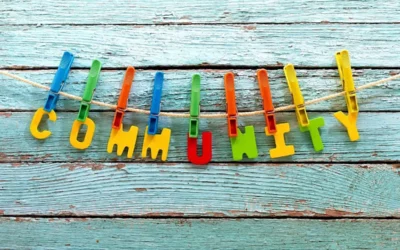Resilience or bouncing back?
In 2013 I left my comfortable trainer job at Apple to start my own company, I wanted to create a unique service to support people that, like me, struggle to build a meditation or mindfulness practice. 2 years later, after many failures, headaches and a lot of money lost, I decided to accept that things didn’t work out as I expected and that it was time to return to my career as a trainer. For a long time, I felt like a failure. It wasn’t until many years later that I realised I didn’t give up, I accepted the situation and moved on, which is a very different thing.
Acceptance, is one of the crucial components of resilience!
I always thought that resilience was about keeping going, bouncing back when things got tough. In my head resilient people never gave up, they always found a way to carry on, but this view lacked the understanding of a very important characteristic of resilience, which is to accept that sometimes things don’t go the way we hope. Many elements are outside of our control and sometimes no matter how hard we try, it doesn’t work out.

There is strength and resilience in walking away from failure or ongoing challenges and looking for a new path. Resilient people are those who can truly leave things behind, without the all too common emotional and mental baggage.
There are 3 key aspects of acceptance that can help us move forward.
Acceptance is an active process. This always makes me think of when people say, “Oh, just let it go” “Or, “Just get over it!”. If only it was that easy right? This illustrates my point, we know we have to accept things, but doing it, it’s a very different thing.
It takes practice to learn how to accept and let things go.
Acceptance doesn’t mean giving up, or that you can’t do anything about it. Accepting and giving up are two very different things. We can accept things and then decide to try again, or we decide to move on and try something else. Again, there is this active element to it, where I accept and then decide what I’m going to do about it, it’s not giving up and just seeing what happens.
Finally, the ultimate acceptance is understanding that everything, yes, everything is temporary. When we fully appreciate that nothing lasts forever it helps us become better at accepting things as they are.
Here’s an example to illustrate these 3 aspects of acceptance. Something most of us can relate to is a heartbreak. This could be after a serious relationship has ended or when a loved one passes away. When it happens we tend to feel like nothing has meaning and we feel like giving up. Acceptance plays a huge part in being able to overcome this difficult situation.

First, we have to actively want to overcome it. We can’t just “Get over it” we need to be proactive and work towards accepting things as they are.
Second, we don’t just give up, we accept the situation we’re in, and start looking into what we do next, what can help us. It can be spending time with loved ones, or seeking professional help.
Lastly, realising that nothing lasts forever, we can start accepting that this pain from the heartbreak won’t last forever.
There is great power in accepting the impermanence of things, as it allows us to move on.
Now, all this sounds great, but what are some actual, tangible things we can do to help us become more acceptant?
Here are 2 techniques that you can start practising straight away. I like these 2 because anyone can practice them, they only take a few minutes each day, and while they might not bring immediate change, you’ll definitely start noticing the benefits in the next few weeks, so give them a go!
Gratitude journal

When I first stumbled upon this concept, my first thought was “This is stupid”! But after reading about this over and over again in all kinds of books and publications, I decided to give it a go. And oh boy, I should have done it a long time ago. It seems silly, but noting down positive aspects of your life, goes a long way! Let me briefly explain. The idea is to write down all the positive things that happen to you, those could be great interactions, fun activities, delicious meals, etc… You don’t have to elaborate on why it was amazing and why you’re grateful (of course you can if you want!) But it’s more about keeping records of good things that happen to you. If you decide to give it a go, when things get tough, or you’re facing a particularly challenging situation, go back to your journal, and revisit some of the things you’ve written down. This will help you on focusing on the good, it will also remind you that things are not always shitty and that good things will be happening to you again soon.
Mindfulness

Yes, I know, another one of those trendy words that are making the rounds. But for good reason, mindfulness works! I’ve been a meditation practitioner for over 15 years, and I have first hand experienced the benefits of becoming more mindful. Mindfulness helps you focus on the present, on what can be done now, instead of worrying about the future or blaming yourself for mistakes in the past. Being more aware of the present moment, not only helps to be more focused but it will also help us become more self aware of our thoughts & emotions, and become more accepting of what is happening to us!
There is much more to be said about gratitude and mindfulness, so I’ll be writing separate posts about those 2 in the future, so stay tuned. But for now, I want to wrap up on Acceptance.
Here are my key points:
- Acceptance is a key aspect of Resilience.
- Acceptance is an active process, it doesn’t mean you can’t do anything about it and it’s understanding things are temporary.
- Having a gratitude journal (it can be digital, in a notebook, even a spreadsheet) will help you better accept the hard times.
- Finally, focusing on the present moment using mindfulness is a powerful tool to become more acceptant.















